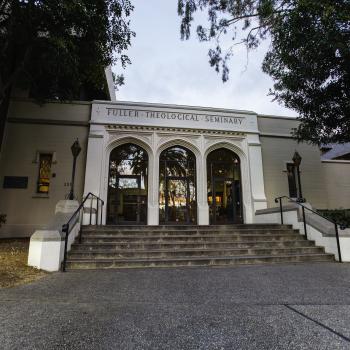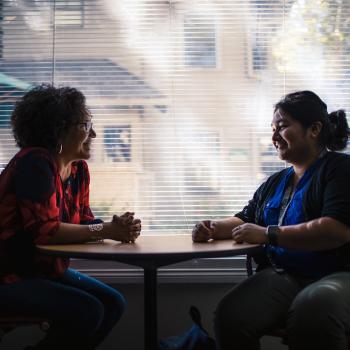By David Moore
Running The Burner as I have for the past five years, I’ve been keeping up with trends in politics, society, and the church world from my ivory tower. I’ve encountered a lot of hand-wringing, bemoaning, and Chicken Little-isms in the process.
However, I’ve come to a surprising conclusion. I’ve come to the realization that the world is getting better—albeit slowly, and not for everyone. Yet.
The past 12 months are a tough proof against my point. One can point to the violence perpetrated in 2014: terrorism both intentionally insidious and thoughtlessly insidious; abuse scandals; political machinations; economic injustices et al. Our conversations are full of fear of police brutality, gang brutality, governmental brutality, environmental brutality. Our lives are spent making our nations safer, our houses safer, our families safer, and our religion safer.
When you’re running on the hamster wheel, it’s hard to judge how far you’ve run. So let’s take a look at where we are.
Let’s take war:
I’ve long had a personal theory that someday we’ll elect our leaders based on their jabs, hooks and uppercuts so that wars would be settled in the boxing ring. It could even be televised! We’re a long way from that, but as the Kurzgesagt video above demonstrates, wartime deaths have plummeted the longer we’ve been on this planet. While atrocities are by no means—by no means!—eliminated, a reduction in this kind of violence is better than an increase.
Plus one for a better world.
Let’s take disease:
Measles has been in the news thanks to an outbreak among those who visited Disneyland in December (http://www.cnn.com/2015/01/
Or we could take the terrible—truly, truly horrifying—Ebola outbreak that has killed almost a third (http://www.bbc.com/news/
Before, people were dying of something other than old age. Now, less people are dying of something other than old age.
Plus two for a better world.
Let’s examine the oppressed—in America, specifically.
Women, as a whole, experience more oppression and violence (http://www.unwomen.org/en/
Plus three for a better world.

This is progress. This is what hope being realized looks like. I believe this is what the yeast of Matthew 13:33 looks like as it “permeates every part of the dough.” The Church should be celebrating and championing these kinds of successes.
To be sure, we still have problems, but they are “better” problems. The family of those tragically lost to disease or oppression or violence may not look upon the loss of their loved ones as progress, and I don’t expect them to. However, we in our ivory towers, beautiful sanctuaries and gated communities most certainly can—as long as we are then inspired to join the resistance against violence, oppression and disease.
In RELEVANT magazine, Cole Nesmith puts it like this:
The Church has a choice. We can either be the voice believing things will get worse; or we can be the voice believing things are getting better and we can summon our communities to lead them that way. Because even if physical poverty and hunger is eradicated, the spirit of humanity is still looking for spiritual satisfaction. If we see the end of war, we still need inner peace. If human slavery comes to an end, there is still a great need for freedom from the bondage of spiritual oppression.
(http://www.relevantmagazine.
It’s not that there’s no work left to be done—there is a tremendous amount to be done! Just because it’s may not be happening to us doesn’t mean we don’t need to do something about it.
The resistance is not over; people will still be killed by terrorists, and innocent children will still die of preventable diseases. Yet we will be on the winning side. We can help to reduce violence and oppression. The reduction is already happening; there’s just still more to go.
“In this world you will have trouble,” Jesus says. But he also says, “Greater love has no one than this: to lay down one’s life for one’s friends.” Some of us as a human population have accomplished a lot with little participation.
Think of how much we can accomplish, with God’s help, if everyone participates.
Here’s a bunch of other ways the world is getting better: http://www.vox.com/2014/11/24/
David Moore is Continuing Education Manager for the Lowell W. Berry Institute for Continuing Education in Ministry at Fuller Theological Seminary in Pasadena, California. He received his MA in Theology and the Arts from Fuller in 2009. Prior to coming to Fuller, David worked in development and alumni relations for the Texas Tech Wesley Foundation after graduating with a BA in Advertising from Texas Tech University. David lives in Pasadena with his wife, Leah Beth, and two sons, Joel and Silas.












